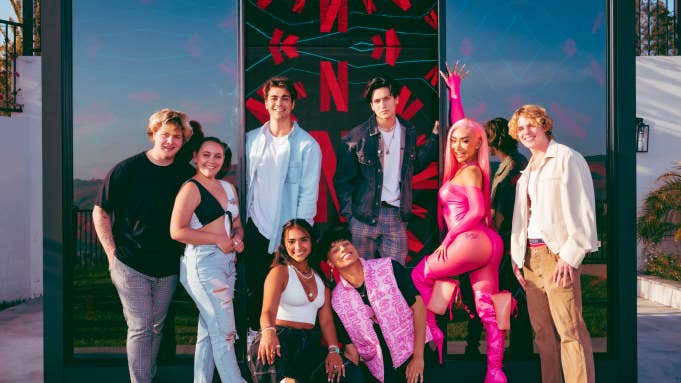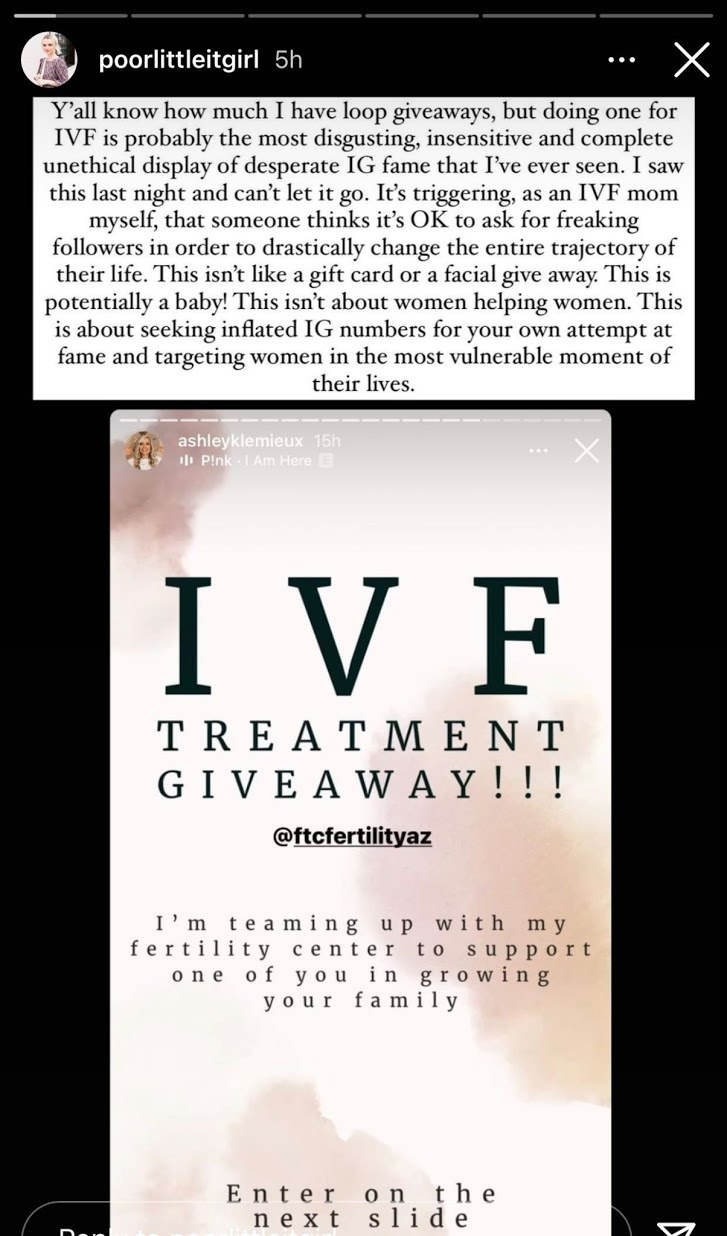This is an excerpt from Please Like Me, BuzzFeed News’ newsletter about how influencers are battling for your attention. You can sign up here.
I can’t imagine the new Netflix reality shows about influencers will do any good for the industry’s reputation

Netflix recently announced, almost back-to-back, two new reality series: The Hype House and Byron Baes. Both shows will be centered around clusters of influencers: members of the Hype House collective in LA and the surfer mom bloggers Down Under.
Other than their respective fanbases, people were not jazzed to hear about the new series, and that’s putting it diplomatically. The adverse reactions to The Hype House almost became a meme. “Who asked for this???” people wondered facetiously.
A similar but more proactive backlash came for Byron Baes from community members of the now-infamous and lusted-after Australian beach town. Last week, residents and businesses of Byron Bay started petitions to boycott the show, and called on Netflix to cancel it. Some locals told the Guardian that they’re worried about the show creating so much hype that it could create a housing crisis.
“Most of our friends, so many people that we know, have nowhere to live right now,” said a resident named Mandy Nolan. “They don’t really feel like you rolling into town telling a fantasy story that doesn’t exist.”
Que Minh Luu, the director of content for Netflix in Australia and New Zealand, told the outlet that “the show is authentic and honest, and while it carries all the classic hallmarks of the form and embraces the drama, heartbreak and conflict that makes for such entertaining viewing, our goal is to lift the curtain on influencer culture to understand the motivation, the desire, and the pain behind this very human need to be loved.”
I also reached out to Netflix about both of these shows, but didn’t hear back.

It’s predictable that Netflix, with its entrepreneurial spirit, would launch shows about influencers. As these social media personalities make news, good and bad, and align themselves with more mainstream projects, there’s more attention on them. Netflix is trying to cash in on that attention. And although there are many vocal critics, there are also built-in audiences for these shows: sincere fans and hate-watchers. (The Kardashian’s Keeping Up franchise lasted 20 seasons because of this dichotomy! I mean, I most likely will dip in and out of these new shows purely from a place of curiosity.)
Netflix knows this, so it is absolutely commercially sound for the company to invest in these, and potentially more, shows about influencers. In some ways, it could even help to legitimize this career.
My issue, however, is if Netflix or other streaming/production companies invest in making shows solely about one aspect of the influencer industry, and through the same lens, they will perpetuate the same tired tropes. The Real World recipe is tried and true: If you follow around big volcanic personalities with cameras all day, and manipulate dramatic storylines, you will get those dirty but captivating reality TV moments. Cast members are encouraged to reduce themselves to their most controversial or self-produced forms for our viewing pleasure and displeasure.
But if that’s the only kind of media people who aren’t familiar with influencers get to see, it will further sully the industry’s reputation. Most people already associate social media stars with being vapid and uninspiring — and for many of them, these hallmarks aren’t untrue — but of course that’s not a fair representation of all influencers. Before I start to sound like I’m about to ignite a #NotAllInfluencers hashtag, I’m only trying to stress that the differentiation is really important.
Earlier this year Stephanie and I separately reviewed Fake Famous, the HBO documentary about hacking being an influencer. We did not like it, and we did not consult each other before declaring that we both did not like it. For me, it felt like the journalist and narrator who centered himself in the documentary created a piece of work that allowed all of our snarkiness about a certain kind of lifestyle influencer to run rampant. I’m sure that felt nice for some of us and our moral superiority, but it did not help humanize social media personalities for viewers. It didn’t challenge why we’re so turned off by their career choices or create a space for influencers to reflect on themselves.
With these new reality shows — if they make it to a premiere date — I’m worried it will have a similar effect. We’ll continue to gawk, to be disgusted, to feel better than them. Hate-watching drives a lot of viewership, so Netflix will only get the cue to keep reinvesting in shows like these. Abstaining from watching can be impactful, but we can also encourage them to develop shows about influencers with more nuance and care. Show us a different kind of influencer, or if you’re going to market these shows as revealing “a side of [influencers] … that we rarely see,” commit to this claim, Netflix. You’re the mediator, the author. How can we, the viewer, get to know these TikTok or Instagram personalities through a holistic lens? What does “drama” look like for them when it’s not visible conflict or interpersonal? What do they experience and feel when they’re not performing to the public? Why have they chosen this career? In what ways is it sustainable, and in what ways is it damaging to their future plans?
If we’re only going to get more ultra-produced packages like Keeping Up or Life of Kylie, I don’t want it.
—Tanya Chen
These influencers are getting criticized after doing a loop giveaway for IVF
For the past year and a half or so, I have been reporting about the growing backlash against loop giveaways on Instagram. Even if you’re unfamiliar with the term, you have probably seen them in practice on your feed. These are the giveaways influencers host with other influencers, sometimes via a third-party organizer, offering followers a chance to win a prize if they follow everyone in the “loop.”
Though these giveaways are frequently touted by the influencers who participate in them as a way to “give back” to their followers, critics argue they merely serve to artificially inflate an influencer’s following. They create a vicious, MLM-like cycle, where influencers who can pay to play are able to balloon their follower count in a short amount of time, leading to bigger ad deals and partnerships.
There’s also the fact that many of the giveaways are technically against Instagram’s terms of service, though that’s rarely enforced. After a group of influencers tried to give away a car last year, and were subsequently rebuked by Instagram, the cacophony of voices calling the giveaways out as shady grew louder. Some big accounts backed off from doing them, but many still participate.
Last week, a new loop giveaway fired up many on the platform, leading to another round of discussion about how toxic these giveaways can be. For many women on Instagram, it felt personal.
It happened during National Infertility Awareness Week (NIAW), which aims to change the conversation and stigma around infertility. To mark the week, two influencers, Katie Stauffer and Ashley LeMieux, teamed up with a fertility treatment center in Arizona to offer a follower free in vitro fertilization treatment (the clinic gave the full list of what would be covered on a grid post). The only catch? It appeared to be a loop giveaway, so you needed to follow Katie, Ashley, and the center to participate. “To enter, follow us below!” it read. “Swipe up and fill out the application form! Slide the slider when done!” It appeared that in order to be considered for the IVF, you needed to be following all three accounts, as well as enter via a form.
Both influencers have been open about their own experiences with infertility. The influencers and the clinic did not respond to requests for comment on the giveaway.
Giving away fertility treatments, via Instagram or otherwise, isn’t actually that uncommon. Many clinics do so in honor of NIAW, and some partner with influencers to do so. Naomi Davis, aka Taza, even did a giveaway with her fertility doctor that same week.
What people have an issue with isn’t the idea of giving away fertility treatments, it’s doing so via a loop giveaway. Since loop giveaways benefit the influencers financially, people on Instagram argued, it seemed unethical to do such a promotion aimed at people who are struggling with infertility and already facing heartbreaking obstacles and costs.
One influencer who spoke out against the giveaway, Cathy Peshek, who blogs at Poor Little It Girl, told me she felt the women were “basically trading an IG follow for a potential baby by preying on very vulnerable and desperate women. It's so insensitive and tone-deaf.”
“The ‘gift’ of IVF is so self-serving… both women are NOT here to help anyone but just help themselves with a higher follower count,” she said.
Cathy, who said she’s an “IVF mom” herself, posted about the giveaway on her Instagram stories, writing “this isn’t about women helping women.”

While neither Ashley nor Katie nor the clinic responded to requests for comment from me to discuss the ethics of this giveaway, the criticism seems to have made a difference. While originally the giveaway seemed to require following all three accounts to enter, the current post about it on the clinic’s Instagram account makes no mention of following anyone. It’s unclear if the post was edited or if the post never mentioned the following requirement, as the stories did.
The comments are flooded with women hoping to win the giveaway, and it is a very popular post for the clinic, which has around 1,600 followers, with hundreds of comments.
I don’t think loop giveaways are going away anytime soon, but I have been encouraged by how awareness has grown about them among the influencer community. Since I started reporting on them, I have seen a lot more people talk about the questionable ethics behind them, and a lot of big accounts that did them have dropped off (after growing their followings) due to the backlash.
But clearly, they are still a thing. The only question is, what will they give away next?
—Stephanie McNeal

